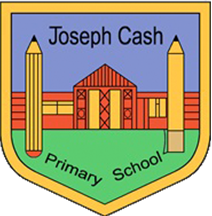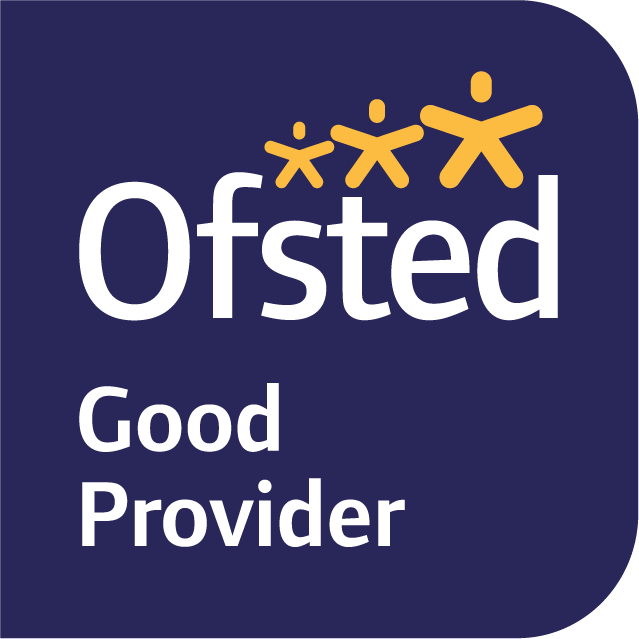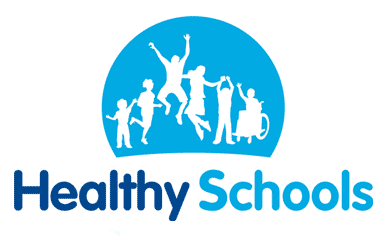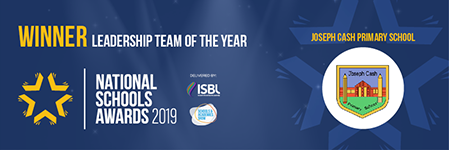SEND OFFER AT JCP
At Joseph Cash we believe in providing the learning opportunities for all of our children to learn in a safe environment which will enable them to flourish and be successful in their later education and life. We recognise that some children require a bespoke, tailored approach to ensure they are able to access the learning that they are entitled to. A great deal of information on the rich nature of our inclusion can be seen within this section of our website.
Below are some of the ways we ensure our pupils have fair opportunities to learn and succeed:
- Class teachers plan lessons according to the specific needs of all children in their class to ensure that your child's needs are met.
- Specially trained support staff can adapt the teachers planning to support the needs of your child where necessary.
- Specific resources and strategies will be used to support your child individually and in groups.
- Planning and teaching will be adapted on a daily basis, if needed, to meet your child's learning needs.
- Pastoral support will ensure strategies are in place to support children with social and emotional barriers to learning.
How is Joseph Cash accessible to children with SEND?
- All areas of the building are accessible to children with physical disabilities.
- We ensure that equipment used is accessible to all children regardless of their needs.
- After school provision is accessible to all children including those with SEND.
- Extra-curricular activities are accessible for children with SEND.
Identifying SEND at Joseph Cash
This guide sets out the different stages of identifying a pupil with SEN and the steps to take within each. If a pupil continues to make less than expected progress once all three stages have been completed, teaching staff may use the evidence gathered at each stage to complete a referral form.
1. .Quality-first teaching and regular classroom assessment for all pupils
Use assessment data to identify pupils whose progress is:
- Significantly slower than that of their peers starting from the same baseline
- Failing to match or better their previous rate of progress
- Failing to close the attainment gap between the child and his or her peers • Widening the attainment gap
2.High-quality differentiated teaching
- Target high-quality teaching at the pupil's areas of weakness
- Adapt classroom practice to suit the pupil's needs
- Implement short-term interventions
- Evaluate the success of interventions by comparing the pupil's levels before and after
3. Work with the SENCO to assess SEN
- Implement more rigorous interventions
- Evaluate the success of interventions by comparing the pupil's levels before and after
- Speak to the pupil and parents about the pupil's needs
- Seek expertise on the pupil's needs
What SEND agency support do we currently receive in school?
|
Agency |
|
Speech and Language Therapy (SALT) |
|
What do they do? |
|
Speech and Language Therapy helps children and young people to reach their full speech, language and communication potential. Speech and Language Therapists (SALTs) are allied health professionals (AHP). The Speech and Language Therapy team work with children who have difficulties with: o Speech o Language o Stammering o Voice o Feeding & swallowing
These difficulties could be, but are not always, linked with: o mild, moderate or severe learning difficulties o physical disabilities o hearing impairment o cleft palate o autism o degenerative conditions How is the service organised? It is part of the Integrated Children’s Service of Coventry & Warwickshire Partnership Trust, alongside other health professionals working with children and young people. The children's Speech and Language Therapy Service is organised into 2 clinical teams: one working with pre-school children and one working with children and young people of school age. How do School use this service? We currently make referrals to the NHS SALT service for pre-school children and for families who we are confident will attend appointments, can access services independently without school support or pupils whom are not of significant need. These pupils are accepted to the service (thresholds have changed) will be offered an assessment with a Speech & Language Therapist. This could be in a variety of locations. Following assessment, advice will be given and children may receive community intervention, as appropriate. School is given report for these pupils. What about our 'Buy In' ? School currently buys in 1 morning a week (Thursdays) from the NHS Trust. This therapist is of a band 5 qualification and allows school to 'fast track' select, assess and review pupil's needs / progress of our choosing. Currently children of high need, those who require specialist therapy and speech specific difficulties (stammer) make our caseload. Our school also employs a specialist trained Teaching Assistant on a Wednesday to support identified children in school with their targets set by the Speech and Language therapist. |
|
Agency |
|
Social, emotional, mental health and learning team (SEMHL) Complex Communication Team (CCT) |
|
What do they do? |
|
SEMHL are a team of teachers, support workers and teaching assistants working in mainstream schools to enable children with learning, emotional and/or behaviour difficulties to achieve the best outcomes. There is a city wide service working in the majority of primary schools (82/85) for all services and provides support to secondary schools for transition support. They also offer 1 to 1 dyslexia support. SEMHL provide reports which are shared with parents by school and they are happy to meet with parents to discuss any aspect of their work. The majority of the time, reports, findings and recommendations are given to teachers and the SENCO. Complex Communication Team This team supports children who have a social communication difficulty or Autism. They support the SENCO and class teachers in assessing the needs of these children and suggest strategies and targets to support the children with both their social needs and learning as required. How do School use this service? We currently make referrals to the SEMHL and CCT team during our professionals meeting termly. These, along with, SALT are the agencies most used by school. Learning assessments, observations and tests are used by the team and these inform school about how best to support pupils, identify need types and provide bespoke and tailored interventions that are personalised directly from the needs identified. We currently have 1 link SEMHL and CCT teacher attached to school and they are able to respond to our needs quickly. i.e: whole class observation for a tricky group of SEMH /ASD/SEND learners, strategies given and shared, upward trend in behaviour and attitude to learning. |
| Agency |
| Educational Psychology Service |
| What do they do? |
| The EPS is a team of educational psychologists (EPs) who work directly with schools (mainstream and special) and parents/carers to promote the educational, personal and social development of children and young people.Provide a greater depth of diagnostic testing, identify specific difficulties and set very bespoke, short term targets for pupils. EPS team train staff in the delivery of the targets and review them with school. This is for high need pupils.School have to provide an EP report when submitting EHCP requests.The nature of their work is very detailed and therefore allocated hours are used quickly, with a relatively small sample of children. |
SEND Information Report
From July 2014, the Government published the New Code of Practice, which saw major changes to Special Educational Needs. As part of the New Code of Practice every school in England and Wales had to provide a SEN School Report, which outlines what each school has to offer when considering Special Educational Needs for individual children.This document is intended to give you information regarding the ways in which we ensure we support all of our pupils including those with SEND to ensure they achieve their full potential. Children who have a Special Educational Need and/or Disability (SEND) are expected to make good personal progress alongside their peers. The purpose of this report is to give you information about the support and services provided for all children including those with SEND at Joseph Cash Primary School. Please be mindful that the support given to children at Joseph Cash may change depending on individual needs. Please check with your class teacher or the SENCO if you have a question about your child's learning. The statutory National SENDCO qualification has been completed by our Deputy Head teacher (Mrs Scott ). She is the Inclusion Manager and leads the Overcoming Barriers Team, supported by the school SENCO Mrs Carol Cooper. How to contact us for further information or support.Deputy Head teacher (Inclusion) Sara Scott ()SENCO Carol Cooper ()Definition of Special Educational Needs and Disability (SEND)
A child or young person has SEND if they have a learning difficulty or disability which calls for special educational provision to be made for them. A child of compulsory school age has a learning difficulty or disability if they:a) have a significantly greater difficulty in learning than the majority of others of the same age; orb) have a disability which prevents or hinders them from making use of educational facilities of a kind generally provided for others of the same age in mainstream schools or mainstream post-16 institutions. (SEND Code of Practice 2014)Definition of Disability
A physical or mental impairment which has a substantial and long-term effect on the ability to carry out normal day-to-day activities- Equality Act of 2010.What kind of SEND do you make provision for at this school?
We are a mainstream school and support all children who have a range of special educational needs and disabilities (SEND).Currently 112 of our pupils do have special educational needs. Children are identified as having SEND when they have made less than expected progress and the interventions and resources we usually put in place have not enabled significant improvement. We have individual intervention plans which help support pupils development and closely monitor their progress.
The Code of Practice 2014 describes four broad areas of SEND
- Communication and Interaction, including speech, language and communication needs (SLCN) and Autism Spectrum Disorder (ASD).
- Cognition and Learning, including severe learning difficulties (SLD), profound and multiple learning difficulties (PMLD), Specific Learning difficulties (SpLD), including Dyslexia.
- Social, mental and emotional health (SEMH), including attention deficit disorder (ADD), attention deficit hyperactivity disorder (ADHD), as well as other issues that are rooted in mental health.
- Sensory and/or physical needs, including a range of physical difficulties (PD) as well as hearing impairment (HI), visual impairment (VI) and multi-sensory impairment (MSI).
How do you know if a pupil has SEND?
a) Any assessments made on entry to the school, or during the school year on a whole school basis. This may include reading tests, standardisation testing or EYFS tracking.b) Any targeted assessments undertaken by pupils who may beexhibiting special educational needs on entry to the school.c) Details of any referral process whereby teachers are encouraged to raise concerns with the SENDCo regarding the performance of a pupil who they suspect of having special educational needs, once the teacher has delivered personalised learning.d) Pupils who do not make expected progress through the graduated approach may be further assessed by external agencies, such as the Social, Emotional, Mental health and Learning (SEMHL), the Educational Psychologist, Complex Communication Team, Occupational Therapy Service and Speech and Language Therapy Services.Class teachers closely monitor the progress made by all children and ask advice from the SENDCo as soon as they have any concerns about any pupil. Pupil Progress Meetings take place half-termly where the progress of children is the key to the discussions.The impact of programmes and interventions universallyimplemented is measured and if progress is not accelerated further, more specialised programmes/temporary additional support is made available. It may become necessary to contact external specialist services for further advice and assessments.How will I know if my child is receiving SEND support?
As a school we aim to maintain open lines of communication with parents/carers. As soon as we become concerned about the progress of a pupil the class teacher will discuss this with the parents and work together to devise a plan of support. If this does not accelerate the progress then the SENDCo and class teacher will meet with the parent in a 'structured conversation'. They may then be formally recorded on our SEND register. All children on the SEND register receive support that is 'additional to and different from...... which is recorded on an individual intervention plan (IPP) and reviewed at least termly. Termly review meetings take place with the SENCO, Class teacher, parents and child based on their age. Targets are reviewed and successes are celebrated and new targets agreed if required.What should I do if I think my child has SEND?
In the first instance, contact the class teacher to discuss the issues. If your concerns remain unresolved contact the school SENCo Mrs C Cooper or Mrs S Scott (DHT).How do you make sure that the SEND support is helping children make good progress?
Class teachers closely monitor the progress made by all children and ask advice from the SENDCo as soon as they have any concerns about any pupil. Pupil Progress Meetings are convened regularly where the progress of children is the key to the discussions. The impact of programmes and interventions universally implemented is measured through the recording of entry and exit data.Interventions that are not improving progress are adjusted or replaced with other provision. Children on the SEND register and on an IPP have a Termly meeting with the class teacher, SENDco and parents to review their targets and set new ones if required. If school is concerned about a child's progress then advice and assessments can be made by specialist teams who can be called into school by the SENDco.How do you check and review the progress made by pupils with SEND?
All children on the SEND register receive support that is 'additional to and different from......which is recorded on an intervention plan and reviewed at least termly. Progress is a key part of these meetings and adjustments are made accordingly. Additional specialist advice may be sought. During these meetings progress against targets will be discussed. Potential barriers to learning will be identified and plans made to overcome them. New targets will be set and roles and responsibilities defined. In attendance will be class teachers, SENDco and parents. Older children may also be involved in this discussion if appropriate. Dependent on a child's provision there may also be specialist agencies represented.Minutes will be circulated after the meeting and individual intervention records updated. These form the basis for subsequent discussions. We aim to provide a variety of appointment times to try and accommodate different work patterns. Parents are more than welcome to bring a friend or relative to support them. They may also find it useful to contact the Parent Partnership Service at the Local Authority for support and advice.How do your teachers help pupils with learning difficulties or disabilities to learn?
Quality First Teaching is at the heart of our provision. Your child's teacher will put in place different ways of teaching so that your child is fully involved in learning in class. This may involve things like: using more practical learning or providing different resources adapted for your child. Your child's teacher will also put in place specific strategies. These may have been suggested by the SENDCo or specialist external agencies to enable your child to access the learning task.How can I find out more about what my child is learning at the moment?
Every term a curriculum map is sent out by the class teacher. This outlines areas of work for the coming term across the whole curriculum.Your child will also have an individual intervention plan, developed in conjunction with yourselves through a structured conversation.The school's website and Twitter feed also provide lots of examples of the learning taking place in each class.Who will plan and oversee the education programme?
The class teachers will plan and oversee the programme in partnership with parents. They will follow advice from specialist agencies and our SENDCoWho will work with my child and how often?
This will be individual to the child and documented through the structured conversations and on intervention records.How much 1:1 support will my child receive?
This will depend on the pupil. We provide a mix of focusgroup work, individual work, independent work and whole class work. This will be quantified through the structured conversation.How have you made the school buildings and site safe and welcoming for pupils with SEND?
Our school is housed in a single storey building with double doors and a hygiene suite. We have 4 OBI rooms and other multi use intervention spaces; including a thrive room, sensory room and mini gym. The SENDco has her own bespoke classroom called the Hopscotch Room where meetings and teaching sessions take place.Individual children with very specific medical or physical requirements have a PEEPS (Personal Emergency Evacuation Plan).We employ a Learning Mentor to support medical needs.During lunchtimes we hold a number of social groups, school andClubs including a quieter space on the Big Red Bus. We have weekly circle times as part of our Thrive and PSHE programme.What if my child requires medication? Who will support them with this?
If a child has a medical need then a care plan will be devised in consultation with Mrs V Bayliss (Pastoral Manager) and the school nurse. Prescribed medications can be administered in school if parents sign a medical consent form in the office.What if my child has self care issues, such as toileting?
Please contact Mrs Bayliss to arrange an appointment to complete a care plan. Staff carrying out intimate care provision follow the guidelines in our school intimate care policy. There will always be two members of staff present.Is there any extra support available to help pupils with SEND with their learning?
Whenever possible children with SEND needs will be supported within their main classes alongside their peers. Sometimes we teach children in adult supported focus groups. This enables targeted teaching at the appropriate level. There is additional TA and teacher support to enable this. Our non class based SENDCo delivers additional teaching support on a needs led basis. Some pupils require additional 1:1 support and this is provided by both teachers and TAs. We access support from the local authority, such as Dyslexia Liaison Teachers, Speech therapists, Visual and hearing teachers, Complex communication Support teachers and Access Services.How will I know if my child is getting extra support?
Class teachers will discuss additional support with parents. This will be documented. If specialist support from external agencies is required the SENDCo will oversee this and coordinate it with class teacher and parents. This will be documented. Parental signed permission is always sought before a referral is made to a specialist outside agency. Reports of assessments are always shared with the families. Where a child may be requiring special provision to make the event accessible a plan would be drawn up in partnership with parents.
How can my child and I find out about these activities?
Events are advertised through our website and regular school newsletters. An afterschool clubs menu is sent home half termly for children to select which activities they would like to access.How will my child be included in activities outside the classroom, including school trips?
We have an inclusive policy in regard to all additional activities.Offsite activities are planned to be accessible to pupils withSEND. Where a child may be requiring special provision to make the event accessible a plan would be drawn up in partnership with parents.How will a safety risk assessment be carried out that reflects the individual need of a pupil with SEND when outside the classroom and on school trips?
Risk assessments are completed for any educational visit or experience. Individual children may be named on the risk assessment as necessary, some pupils have a risk assessment dedicated to them and meeting their needs. Trip leaders carry out a pre-visit to the site of the trip to assess any risk and discuss any additional needs with the provider.How does your school support pupils' social and emotional development?
We have a family support worker and a team of Learning Mentors who work closely with the SENDco.We work with the SEMHL team, RISE (formally CAMHS) and Educational Psychology Service to tailor programmes to meet individual needs.What support is there for behaviour?
See the school's behaviour policy for more information.How does your school promote a positive attitude and inclusive culture towards SEND by the whole pupil population?"
We celebrate all achievements in all areas of life.All children are encouraged to attend all relevant events and activities and stand for student council. Adaptations are made if needed to ensure all children can participate.We use 'circle time and Thrive principles to promote our positive, inclusive ethos and engage children in supporting each other to overcome barriers encountered in all areas of school life.We encourage our pupils to become involved in our community and they often have fund raising ideas to support others.We have developed growth mindset characters to promote positive learning behaviours for all in school.How are the adults in school supported to work with children with SEND and what training do they have?
There is an ongoing programme of CPD and direct support and advice from specialist external agencies.The CPD programme is linked to the school development plan. There is CPD planned for individuals and groups of staff as well as whole school. This is adapted depending on the needs of our children.What happens if my child needs specialist equipment or other facilities?
The school works in consultation with specialist external agencies to secure appropriate equipment for those that require it. We apply to relevant agencies for the loan of equipment. We have some resources on site (sit fit cushions, angle boards, weighted vests) and respond to specialist agency reports to make any necessary purchases for auxiliary aids.How will I be involved with the planning for and supporting my child's learning?
We have structured conversations with parents, at least termly, where additional support is required for a pupil. We encourage the development of an open dialogue between parents and staff.Who will help me support my child at home?
We advertise parent sessions that are available from other organisations in a notice board located by the school entrance and on the school newsletter and website. Teachers / SENDCo will be happy to support parents with ideas as to how to help their child at home. During the structured conversation advice is shared for home support and additional practice. We send out termly advice/target sheets for English and maths from Key Stage 1 onwards. Also there are termly curriculum overviews.Differentiated home learning tasks are tailored to individual needs and families can opt into bronze, silver or gold home learning tasks therefore choosing the amount of home learning they would like their child to have.Our family support worker and Learning mentor team can offer additional support and training to parents tailored to need e.g. behaviour, sleep routine, diet and also offer a 'parent to parent' group.Do you offer any parent training or learning events?
We currently offer 'Positive Parenting Seminars' with the Children and Families First team. Please watch our website for details as the programme develops. We offer in school parenting support groups.How often will structured conversations (meetings with parents of SEND pupils) take place?
"Structured conversation" is the name given to the meetings parents and teachers have about children with SEND at Joseph Cash School. These should be held termly, at a minimum, but for some pupils more meetings may be required. Where there are external specialist agencies involved representatives will attend the meetings where possible.How is my child involved in their own learning and decisions made about their education?
We gather pupil voice regularly and analyse the results to inform our practice. Dependent upon the individual, pupils attend for some or all of their structured conversations. Teachers give pupils' feedback and talk to them about their targets and what they need to improve on. Teachers also take into account personal preferences when developing personalised programmes of work. Pupils are given the opportunity to self assess. This may be through a 'smiles' system, scaling or other method. This is developed according to individual need.Who should I contact if I am not happy with my child's learning/ progress/ provision?
Your first step should be to contact the class teacher. If your query is not resolved then contact the SENDCo, Mrs Cooper. If the issue is not resolved by the class teacher and SENDCo you can request a meeting with the headteacher. If you are not satisfied with the outcome you should follow the school's complaints procedure. A copy is available from the school office.Who else provides services in school for children with SEND?
At Joseph Cash Primary School we work with a number of external specialist support agencies. This is the most recent agencies we have worked with but not an exhaustive list.- Speech and Language Service
- Occupational Therapy
- Complex Communication Team
- Children's and Family First Team
- Sensory Support Service including guide dogs for the blind.
- EPS Educational Psychology Support Service
- Social, emotional, mental health and Learning team.
- Vibes
- Relate
- Defuze
- Time for You
- Parent Partnership Service
How can my family get support from these services?
If the school identifies a need it will ask for written permission from parents to make the referral to the relevant agency.If a parent has identified an agency they feel would benefit their family they can request a referral. Many agencies run an open referral policy and parents can refer themselves if they so wish.Who should I contact to find out about other support for parents and families of children with SEND?
There are an extensive number of agencies that can support families. This list is ever growing. Please contact the school for the most recent list available. The Parent Partnership Service (SENDIASS) at Limbrick WoodCentre/Thomas Naul Croft, Coventry CV4 9QX telephone024 7669 4307 has up to date lists of many agencies available to support families. Leaflets are available from Mrs Cooper in school.How will you help my child make a successful move into the next class or school?
On entry to Early Years Foundation Stage (EYFS) we have an extensive transition programme which involves liaison with the nurseries, parents and agencies involved with pupils. As the pupils transfer between classes we have rigorous transfer of information processes. We also offer parent information sessions at key points (FS to Y1, Y2 to Y3, Y5 to Y6). This programme is always being developed. Individual pupils may require bespoke transition arrangements and these would be planned in partnership with parents at the Structured Conversation. Pen portraits are written by the pupils, teachers and parents for children who may need additional support on transition to a new class or school. The SENco holds meetings and transfers reports as needed.As the pupils transfer from Y6 to 7 we run an extensive transition programme. Contact our SENco or Learning Mentor team for more information. The last Structured Conversation in any academic year will be attended by both the pupil's current teacher and their receiving teacher where possible. This allows parents, teachers, relevant agencies and, if appropriate, pupils to share the most recent information for a pupil. It should be noted that there may be a number of adults attending and it may be that the pupil's views are gathered outside the meeting and tabled in it. This would be decided on an individual basis. Annual Reviews will be held in accordance with the relevant legislation for children on an Education, Health Care Plan.(PEEPs) personal evacuation plans and medical plans are undated whenever a change occurs.The Early Years team home visit all children in Nursery and Reception at the start of year. The SENDco or Assistant Head and a learning mentor home visit all new children to school to ensure crucial information is shared on transition. A meeting is then held with the SENDco/Assistant Head and Head teacher a few weeks after arrival to ensure the child is settled and any concerns are addressed immediately.Where can I find out about other services that might be available to our family and my child?
The Coventry Local Authority SEND Information Report is available on the Coventry Learning Gateway websiteInclusion Policy
At Joseph Cash we ensure that everyone is included and feels valued through their learning and personal achievements. We promote positive attitudes to learning and ensure that every child is giving opportunities to progress and reach their full potential, including those with additional needs. At Joseph Cash we have clear procedures and policies in place to support the development of pupils and to support staff to have a clear understanding of practices that are to be carried out which are set out within the policies. The Inclusion policy outlines what Inclusion is at Joseph Cash and how procedures are carried out. The Policy has been written in conjunction with the SEN School Report.
Overcoming Barriers
At Joseph Cash Primary School, we believe strongly in the absolute inclusion of all pupils in our care, regardless of their background, ability, language, gender, ethnicity, special needs or disability.Joseph Cash Primary School is committed to meeting the needs of every pupil at the school and our 'Overcoming Barriers' team support pupils in a variety of ways to ensure progress is secured for all pupils.Overcoming Barriers Team
Our Inclusion Team is led by Mrs Scott, our Deputy Headteacher. Mrs Scott oversees the provision offered for all pupils with additional needs including those with special needs, those who have Education, Health and Care plan, those who are disadvantaged and those who have English as an Additional Language. Mrs Scott also leads the assessment for teaching and learning and offers insight into where provision is most effective and may best be targeted. Mrs Cooper is our school SENCo and has a critical role to play in ensuring that children with special educational needs and disabilities within our school receive the support they need. SENCO stands for "Special Educational Needs Co-ordinator. Mrs Cooper is responsible for the day-to-day operation of the school's SEN policy and will co-ordinate additional support for pupils with SEN and liaise with their parents, teachers and other professionals who are involved with them. Mrs Cooper has responsibility for requesting the involvement of our Educational Psychologist and other external services particularly for children who require additional support to make progress, this also includes general SEN assessments, administration and parental support.Mrs Smith, Mrs Rahill and Miss Cleverly are part of our ˜Overcoming Barriers" team and are experienced and exemplar Teaching Assistants, their role is wide and varied, aiming to impact on our SEND and vulnerable pupils academically. The provision enrich significantly the quality of support and education offered to many of our children.In addition to this provision a number of additional staff play a vital role in supporting the inclusion of pupils.Hopscotch
The Hopscotch group is a KS2 overcoming barriers intervention that supports pupils to 'boost' their Maths and English basic skills in a short term, intensive intervention program that runs every morning for half a term at a time.Jigsaw
The Jigsaw group is an overcoming barriers intervention that supports pupils with significant special educational needs to access specific curriculum skills. Jigsaw offers a play-based, language development curriculum every morning.Leapfrog
The Leapfrog group is an overcoming barriers intervention that supports pupils in KS1 to develop their phonics, mental maths, English and Maths skills to ensure children move towards age related expectations at an accelerated rate.Parachute
The Parachute Group is an upper KS2 overcoming barriers intervention that supports pupils to 'boost' their Maths and English basic skills in a short term, intensive intervention program that runs every morning for half a term at a time to ensure children move towards age related expectations at an accelerated rate.Lunchtime Nurture
Lunch club is run by our learning mentor team to offer guided group play for pupils who find building relationships and managing feelings, emotions and their behaviour a challenge.pils in school. We have a number of bespoke intervention groups that support the individual needs of pupils.An A to Z Guide of SEND at Joseph Cash
Additional Needs Register All teachers have a list of pupils that have special educational needs or a disability within the class, this is kept in the green class folder. This list gives information on the child's needs, agencies that involved in supporting the child and any actions relating to school support.
Boomerang An overcoming barriers group run by the Learning Mentor team to support pupils with emotional regulation and resilience.
Fab Shop Children collect FAB tokens as a reward for excellent learning and demonstrating positive values. The FAB tokens are totalled into individual pupils 'Bank of JC' book and then the FAB tokens are then used to 'buy' a range of toys, stationary, tokens from the FAB trolley in the main entrance.
Golden Lunch Children who have demonstrated 'GOLD' behaviour throughout the week are selected to attend 'Golden Tea' on a Friday. The lunch is hosted by the Headteacher and includes all things gold, sweets and treats.
Green class folderAn information pack that contains all relevant information relating to pupils in any one particular class.ie; SEND list, medical needs, contact details etc.. The folder is stored inside the medical needs box.ILP An individual language plan which is designed to support pupils with English as an additional language. The plan outlines provision, interventions and identified targets that the pupil is working towards.
IPPAn individual provision plan which is designed to support pupils with special educational needs. The plan outlines provision, interventions and identified SMART targets that the pupil is working towards. The plan is reviewed every term and co-constructed with pupils, parents and teachers.
Learning Mentor Team The learning mentor team lead on pastoral care and support pupils and families in a wide range of ways; Behaviour, Social and Emotional support, CAF work, Direct work, Family groups, Child Protection and Safeguarding to name but a few.
Lego Room - this area can be used for an intervention called Lego Therapy to support children with their self confidence and social skills.
Parent to Parent A group for parents run weekly by our learning mentor team to support parents and carers with parenting styles, strategies and approaches.
Medical Needs Boxes Each class has a clear plastic medical needs box which contains medical information, children's inhalers and other relevant health care information.
PEEP Pupils who have a physical disability require an emergency evacuation plan in the event of a fire or emergency. The Personal Emergency Evacuation Plan is written by our medical needs learning mentor, alongside pupils and parents and is shared with all staff. A copy of the PEEP will be in the green class information folder kept in the medical needs box.
Provision Map A class grid that populates pupils SEND needs and overviews the provision they are in receipt of in any one term.
RED SEND file Each pupil on the SEND register has an individual RED file. The file contains relevant reports, current and historic IPP's, Intervention plans and learning and assessment information.
Shine Time (Intervention) Each of the different interventions on offer are timetabled as 'shine time' pupils attend various booster groups to work on identified needs, in short burst interventions. This is coordinated with the class teachers and the overcoming barriers teachers.
Stay and PlayA community session held in the dining hall for parents and community members with pre-school aged children. The sessions are supported by a member of the Learning Mentor team and the PTA.
Team Around the Child To ensure that all vulnerable learners are supported to achieve their full potential a team of key professionals (teachers, TACs, Learning Mentors) is created and linked to identified pupils. The team works together to ensure that provision matches the child's needs and work together to share advice, strategies and mentoring sessions, liaise with parents, other agencies and the wider staff team in order to secure progress. The aim of the ˜team" will be to provide a coordinated and consistent approach in supporting children SEMH needs by sharing skills and trialling approaches.
The Sensory room A sensory room filled with lights, bubble tubes and sensory resources for pupils to use as a rest, relaxation and sensory stimulation space.













